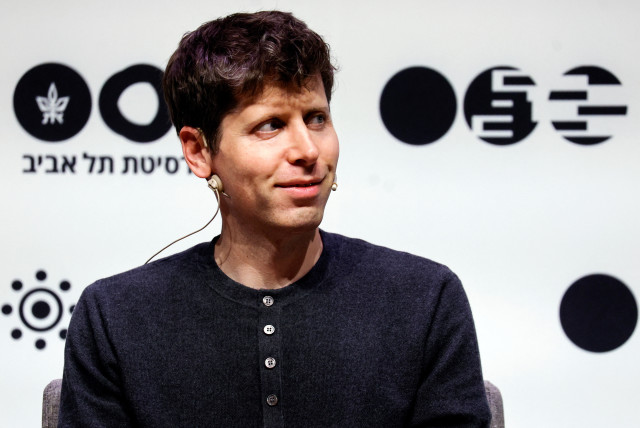Microsoft Israel R&D Center to develop security for ChatGPT

Microsoft has already invested $10 billion in OpenAI and collaboration between the two companies is set to deepen to solve one of OpenAI's central problems.
Although OpenAI CEO Sam Altman has no plans to open an OpenAI R&D Center in Israel, preferring to concentrate all the company's activities in San Francisco, sources familiar with the situation have told Globes that the Microsoft R&D Center in Herzliya will play a key role in the commercialization of the chatbot ChatGPT version sold to enterprises, by developing cybersecurity solutions for it.
In between meeting President Isaac Herzog in Tel Aviv and meetings at Tel Aviv University on Monday, Altman also visited the Microsoft campus in Herzliya Pituah. On Monday evening, he had dinner with Prof. Yuval Noah Harari before flying off to Jordan.
Microsoft has already invested $10 billion in OpenAI and collaboration between the two companies is set to deepen to solve one of OpenAI's central problems. Altman knows full well that the issue of data security and reliability is a big challenge for OpenAI.
More than the threat of the extinction of humanity by AI, he is troubled by how loss-making OpenAI will be able to commercialize the vast knowledge and advantage it has gained in one of the hottest industries among investors today. But as long as security breaches in ChatGPT exist, the future of OpenAI is limited.
To tackle this issue, sources inform Globes that Microsoft Israel will participate in the development of technologies that will help OpenAI reach customers that it is unable to reach today, such as banks, insurance companies, industrial plants, hospitals — organizations that require not only very high reliability of service and minimal breakdowns, but also a high level of privacy and data security.
Microsoft R&D Center in Herzliya is the main cybersecurity center of the global company, which is managed by one of the pioneers of Israeli cybersecurity, Michal Braverman-Blumenstyk. Despite recent layoffs, as have happened at most tech companies, Microsoft Israel's investment in cybersecurity will only continue to grow. Last year the company announced that it would invest $4 billion in the field.
The cooperation will be mutual.
OpenAI and its scientists will also be able to advance Microsoft's AI capabilities and train it on existing and potential threats. OpenAI's AI tool Copilot product, which was launched three months ago, reflects this: Microsoft is applying its AI knowledge to ChatGPT with the aim of providing data security managers with the ability to protect their companies.
Jerusalem Post Store
`; document.getElementById("linkPremium").innerHTML = cont; var divWithLink = document.getElementById("premium-link"); if (divWithLink !== null && divWithLink !== 'undefined') { divWithLink.style.border = "solid 1px #cb0f3e"; divWithLink.style.textAlign = "center"; divWithLink.style.marginBottom = "15px"; divWithLink.style.marginTop = "15px"; divWithLink.style.width = "100%"; divWithLink.style.backgroundColor = "#122952"; divWithLink.style.color = "#ffffff"; divWithLink.style.lineHeight = "1.5"; } } (function (v, i) { });


